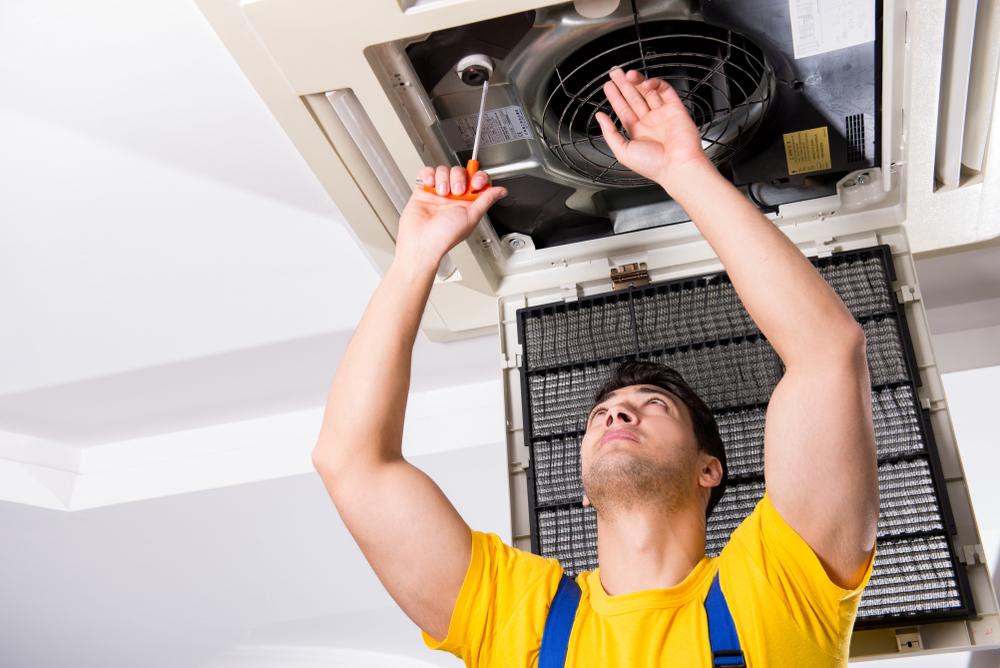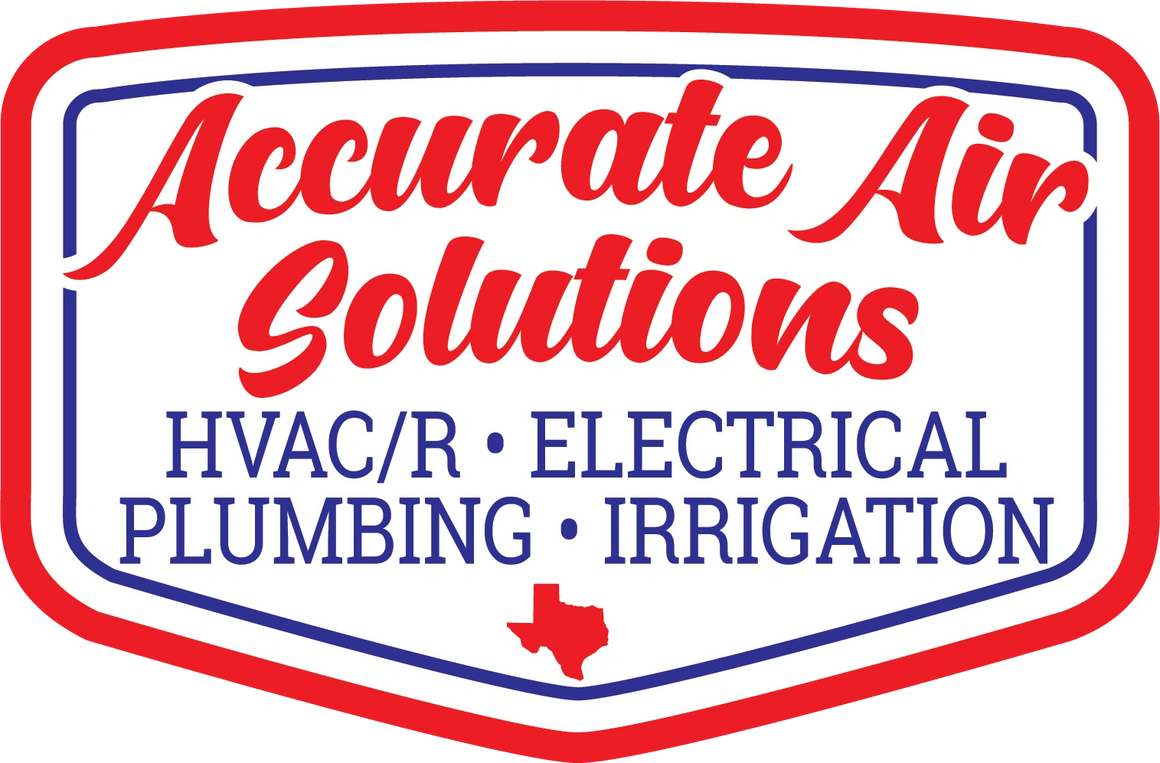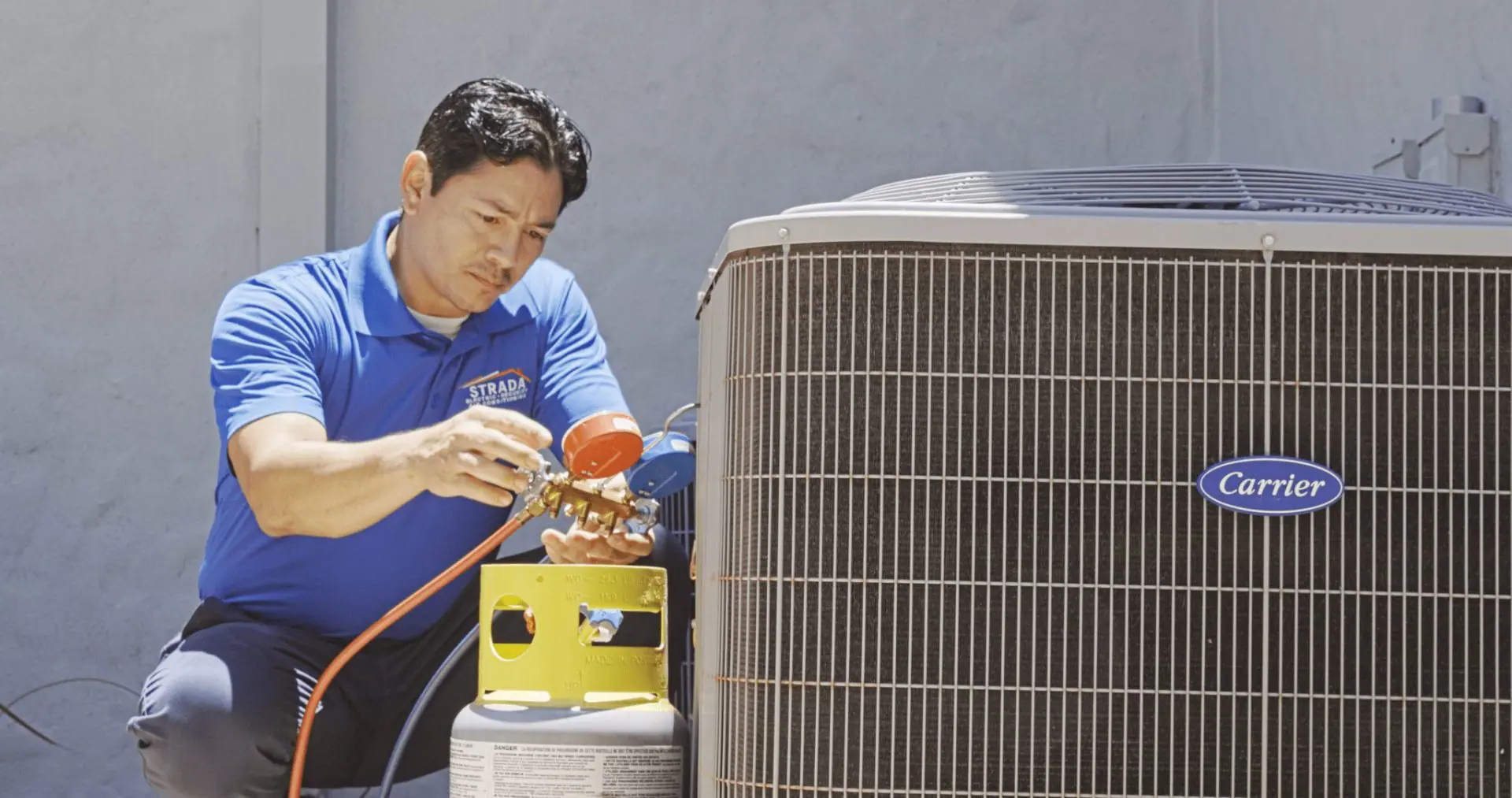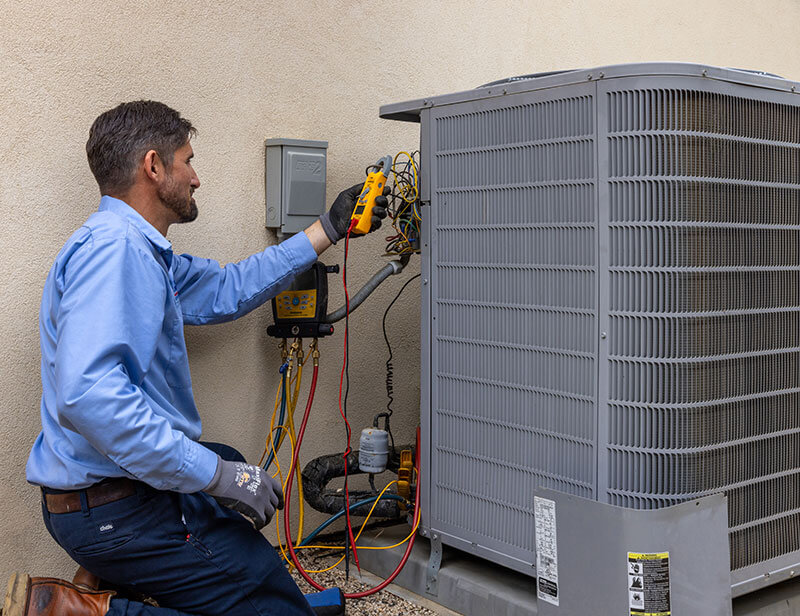Professional Tips for Successful Air Conditioning Installation Brownwood TX
Professional Tips for Successful Air Conditioning Installation Brownwood TX
Blog Article
The Importance of A/c Installment: Trick Considerations for a Comfortable Indoor Setting
The installation of a cooling and heating system is a crucial part in achieving an energy-efficient and comfy interior atmosphere. However, the process includes numerous nuanced factors to consider that exceed simply picking a device off the shelf. Factors such as the suitability of the system for particular structure demands, right sizing to prevent ineffectiveness, and the know-how of contractors for a quality setup play pivotal duties. The fostering of innovative modern technologies can substantially boost system efficiency. Yet, comprehending these intricacies is simply the beginning of ensuring optimal indoor comfort. What are the essential elements that dictate effective cooling and heating execution?
Selecting the Right System

When picking a heating and cooling system, it is essential to assess the capacity needed to successfully warmth or cool down the room without straining the system, which can result in raised wear and functional prices. Consulting with a specialist cooling and heating contractor can give important insights into selecting a system that aligns with both the architectural layout and the expected usage patterns of the building.
Furthermore, thinking about the combination of smart technology can enhance system administration and surveillance, using higher control and potential price financial savings. By carefully analyzing these aspects, one can make sure the selection of an a/c system that not only satisfies instant requirements but additionally adds to long-lasting operational sustainability and resident comfort.
Understanding Power Effectiveness
Understanding power efficiency is vital when considering a cooling and heating installment, as it directly affects both the environmental footprint and the functional costs of the system. High-efficiency cooling and heating devices are designed to utilize less power to achieve the exact same level of comfort as much less efficient designs, thereby minimizing utility costs and promoting sustainability. The performance of a cooling and heating system is generally shown by scores such as SEER (Seasonal Power Efficiency Proportion) for ac unit or AFUE (Annual Gas Utilization Effectiveness) for heaters. Higher scores indicate better efficiency and minimized energy usage.

Spending in an energy-efficient heating and cooling system not just converts to cost savings yet also contributes favorably to environmental preservation by reducing greenhouse gas discharges. Furthermore, numerous jurisdictions supply rewards or rebates for the setup of high-efficiency systems, additionally enhancing their financial appeal.
When assessing power effectiveness, consider sophisticated features such as variable rate motors, wise thermostats, and zoning capabilities. These technologies enhance the system's ability to change to varying demand, thereby enhancing energy usage. It is crucial to talk to cooling and heating professionals that can provide understandings right into the most effective alternatives tailored to specific environment conditions and usage patterns, ensuring maximum performance and convenience.
Value of Correct Sizing

On the he said other hand, a small HVAC system will certainly struggle to reach the wanted temperature level, particularly during severe climate condition. This can cause continuous operation, causing higher energy prices and prospective overheating of system elements. In addition, inadequate sizing can bring about irregular temperature circulation, creating specific areas of a structure to be too cozy or as well great.
To achieve the proper sizing, a detailed tons estimation is crucial. This includes assessing different factors such as the structure's square video, insulation degrees, home window kinds, and regional environment conditions. By precisely establishing the home heating and cooling demands of an area, heating and cooling specialists can recommend systems that make certain reliable operation, minimized power consumption, and you can try this out improved interior convenience.

Making Sure High Quality Setup
A smooth HVAC installation is the cornerstone of a system's longevity and performance. Ensuring quality installment includes precise interest to detail, adherence to industry standards, and employing knowledgeable professionals. The process starts with picking a skilled and certified HVAC contractor. This specialist need to have extensive knowledge of diverse systems and be experienced at assessing the specific demands of the structure.
Proper installment surpasses mere positioning of equipment. It includes specific calibration to make sure optimal air movement, reliable energy usage, and consistent temperature level circulation. This consists of exact ductwork installment, ensuring links are leak-free and safe and secure, which is vital for maintaining system Check This Out performance and indoor air top quality.
Additionally, the execution of advanced diagnostic tools during installment can discover possible problems early, protecting against costly repair work and extending the life expectancy of the system. The contractor ought to additionally ensure that all elements work which the system complies with regional building ordinance and regulations.
Routine Upkeep Practices
As soon as the structure for a high-performing cooling and heating system is established through quality installation, the emphasis should shift to regular maintenance practices to ensure continued effectiveness and integrity. Routine upkeep not just expands the life-span of the system yet likewise enhances indoor air quality, reduces power intake, and protects against pricey repair services. Important upkeep jobs include consistently transforming air filters, cleaning up evaporator and condenser coils, and examining the system for leaks or obstructions.
This simple job can considerably boost air flow and system performance. Furthermore, expert service technicians should check the system yearly, checking for refrigerant degrees, electrical connections, and total system performance.
Interest to ductwork is likewise crucial; securing and cleansing ducts consistently avoids air loss and contamination. Carrying out an upkeep schedule guarantees that small issues are dealt with prior to they rise, safeguarding the system's operational integrity. By sticking to these upkeep techniques, property owners can enhance their heating and cooling system's performance and keep a comfortable interior setting year-round.
Conclusion
By selecting an appropriate system tailored to details building requirements, recognizing energy effectiveness, and ensuring proper sizing, ineffectiveness can be reduced. The participation of proficient professionals warranties quality installment, while the combination of advanced innovations enhances system efficiency and surveillance.
A number of types of Heating and cooling systems are readily available, including split systems, crossbreed systems, duct-free systems, and packaged heating and air systems, each with unique advantages and restrictions.
Understanding power efficiency is essential when considering a HVAC setup, as it directly affects both the ecological footprint and the operational costs of the system. The effectiveness of a HVAC system is commonly indicated by scores such as SEER (Seasonal Power Efficiency Ratio) for air conditioners or AFUE (Yearly Fuel Usage Efficiency) for heating systems (Commercial HVAC contractor in Brownwood TX).When the structure for a high-performing Heating and cooling system is developed through high quality setup, the emphasis needs to shift to regular upkeep techniques to make certain ongoing efficiency and reliability. Additionally, professional service technicians ought to examine the system yearly, inspecting for refrigerant levels, electrical connections, and overall system efficiency
Report this page